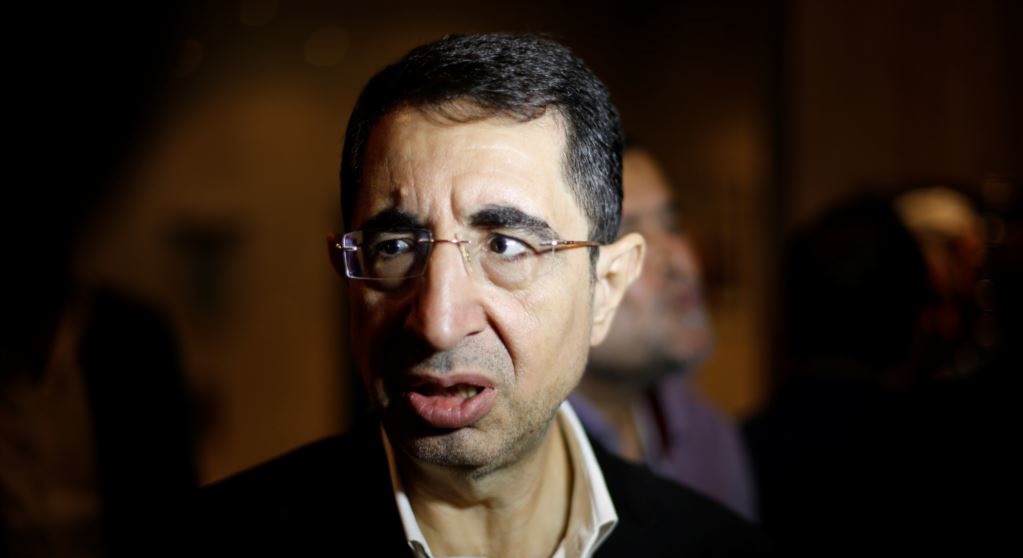Beirut – The visit of Lebanese visitors to Syria did not escalate into a major political dispute in line with the politicians’ agreement to avoid bringing up contentious files at cabinet. Prime Minister Saad Hariri is still committed to avoiding such issues at government, saying that each person is responsible for his actions.
The debate over the visits of ministers to Syria was limited to whether these trips should be labeled as personal or official, said Transportation and Public Works Minister Youssef Finianous, who along with Industry Minister Hussein al-Hajj Hassan and Agriculture Minister Ghazi Zoaiter had arrived in Damascus on Wednesday.
The officials traveled to neighboring Syria to take part in the Damascus International Fair, which kicked off on Thursday.
It appears that the repercussions of the visits will not reach cabinet or put it before a new test given that the Hajj Hassan and Zoaiter will not be signing any new agreements while in Syria, widely informed sources told Asharq Al-Awsat.
They will only reactivate old deals, as indicated in their agenda and meetings in Damascus, they added.
The Lebanese constitution stipulates that a minister’s foreign visit is only considered official if he has the approval of cabinet that grants him political backing. In this case, the government did not approve the visits and therefore any agreement signed by the minister will not be recognized.
Hajj Hassan had held talks on Thursday with Syrian Prime Minister Imad Khamis, who said: “We will be able to overcome major economic challenges through positive discussion, cooperation and dialogue.”
For his part Hajj Hassan, who represents “Hezbollah” in cabinet, stated that the Lebanese participation in the Damascus fair “reaffirms the natural Lebanese stance that supports Syria.”
“Our presence here in Syria, with representatives of the private sector, is aimed at holding discussions with ministers and Syrian officials to tackle economic issues between our countries and in order to provide fair trade,” he stressed.
“We hope that border crossings will soon be opened between Syria and each of Iraq and Jordan ahead of bolstering our exports to Syria and later to other Arab countries,” he added.
The ministers are accompanied on their visit by a Lebanese delegation comprised of 14 representatives of companies taking part in the Damascus International Fair. Sources told Asharq Al-Awsat that some of the companies are presenting their products at the fair, while others are in Syria to study the possibility of taking part in the country’s reconstruction process.
Finanous, of the Marada Movement of MP Suleiman Franjieh, said on Thursday that he was in Damascus at the invitation of the Syrian minister of economy.
He said that he did not create uproar over his trip, “because it is very natural for me as a minister and for the Marada Movement.”
He added that he had informed Hariri of his decision to head to Damascus, saying that the premier “has his stance and I have my own. We agreed on this and I do not want to give this issue more attention than it can support.”
On whether Lebanese-Arab ties will be affected by this visit, Finianous stated: “If some Arab countries believe that ties will be harmed, I say that the prime minister does not approve of the trip..”
“If the Lebanese government combined took a political decision to head to Syria, then the Arab countries that do not recognize the regime of Bashar Assad may take a stance from Lebanon,” he remarked.
Hariri’s Mustaqbal Movement had stated that the visits of ministers to Syria without the approval of the government do not have an official nature, “because Lebanon cannot normalize ties with a regime that has committed massacres against its people and carried out terrorist plots against Lebanon.”
“These visits provoke the majority of the Lebanese people and are a threat to the work of the Lebanese constitutional institutions,” it warned.
